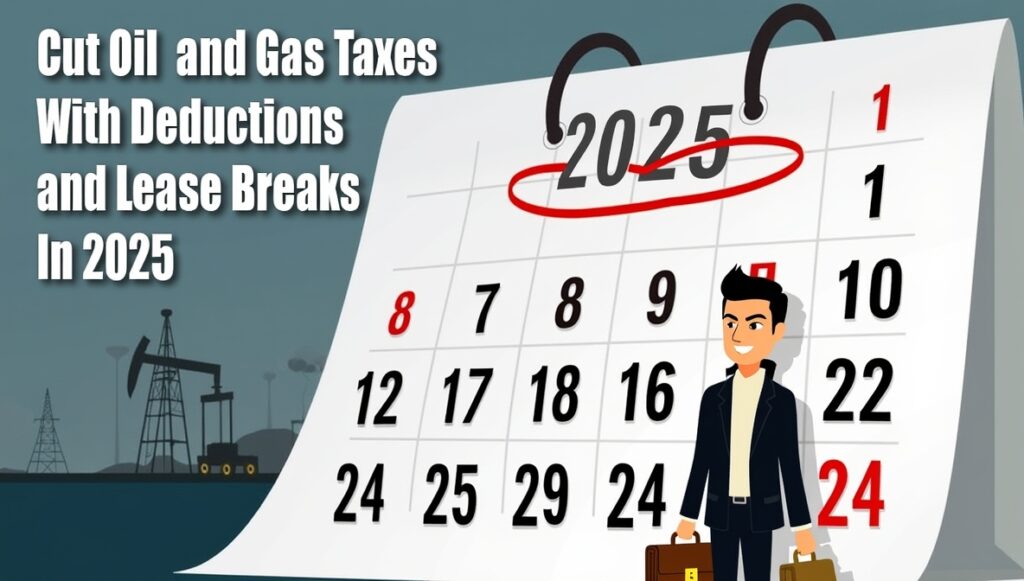
Page 1: Understanding Oil & Gas Ventures and Taxes
Oil and gas ventures are big projects that look for and bring out oil or natural gas from the ground. These ventures can cost a lot of money, and companies pay many taxes. But in 2025, smart tax rules can help.
One of the best ways to reduce tax burdens in oil & gas ventures with expanded deduction and lease incentives is by using special tax deductions. These deductions let companies subtract certain costs from their income, so they pay less tax.
Here’s how it works: if a company spends $1 million to drill a well, they don’t have to count all that money as profit. Instead, they can “deduct” that cost. This lowers how much tax they owe.
Lease incentives are also helpful. A lease is a contract to use land for oil and gas work. In 2025, some areas offer tax breaks just for signing or operating under certain leases. These are called lease incentives, and they can save companies thousands or even millions of dollars.
Using both deductions and lease incentives together is a powerful way to reduce tax burdens in oil & gas ventures with expanded deduction and lease incentives.
Page 2: What Are Expanded Deductions and Lease Incentives?
Let’s look deeper into how this works in 2025.
Expanded deductions mean that companies can now deduct more kinds of costs than before. For example:
- Intangible drilling costs (IDCs): These are things like labor and services. They can often be deducted fully in the first year.
- Depreciation of equipment: Companies can now write off the cost of machines faster.
- Environmental protection costs: If a company installs cleaner tech, they may get an extra deduction.
All of these help companies pay less in taxes, making oil and gas ventures cheaper to run.
Lease incentives are also better in 2025. Some new lease programs offer:
- Reduced royalty rates for early exploration.
- Upfront tax credits for new site development.
- Longer lease terms without extra fees.
States and even the federal government offer these deals to encourage more energy production. These rules are made to help companies, especially smaller ones, stay competitive.
If used right, these tools can strongly reduce tax burdens in oil & gas ventures with expanded deduction and lease incentives.
Page 3: Why It Matters in 2025 and What Companies Should Do
In 2025, energy companies face rising costs, tighter rules, and competition. That’s why using every tax tool is key.
By focusing on how to reduce tax burdens in oil & gas ventures with expanded deduction and lease incentives, companies can:
- Increase profits
- Reinvest in more projects
- Stay ahead of global energy demand
To take full advantage, companies should:
- Work with tax experts: These professionals know the latest 2025 tax laws and can find every available deduction.
- Review leases carefully: Some leases may have hidden incentives. A good review might reveal more savings.
- Track expenses fully: Keeping good records helps claim all deductions and prove them if needed.
Many U.S. producers are already using these rules to their benefit. They reduce their taxes, keep workers employed, and grow their operations.
The takeaway? If you’re in energy, now’s the time to reduce tax burdens in oil & gas ventures with expanded deduction and lease incentives.


